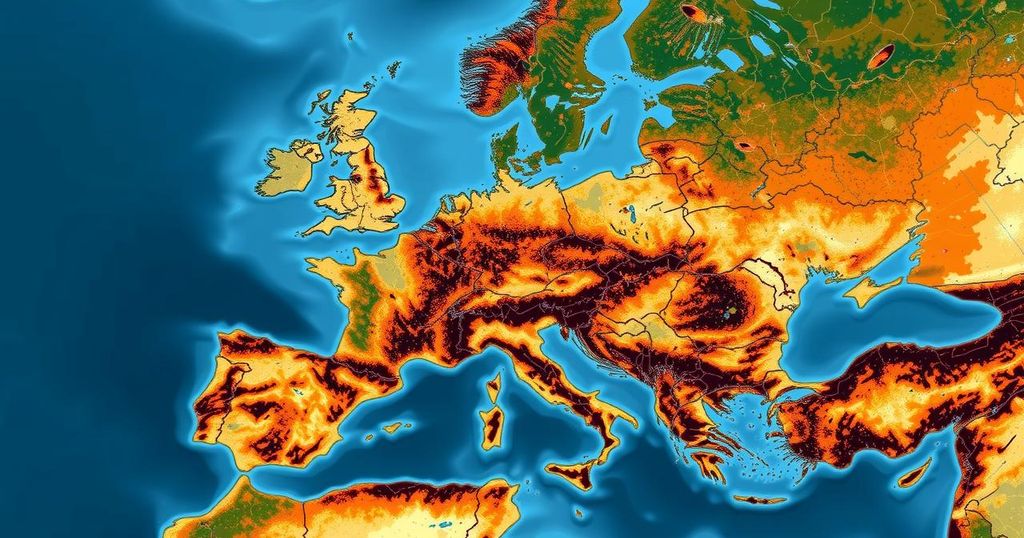A comprehensive study reveals that the severe 2022 drought affecting Central and Southern Europe was exacerbated by climate change, accounting for over 30% of its intensity and extent. Public life and agriculture significantly suffered, with noticeable declines in agricultural yields and severe water shortages reported. The findings stress the importance of recognizing the long-term impacts of climate change on severe weather phenomena.
In 2022, Central and Southern Europe experienced an exceptionally severe drought, which was significantly exacerbated by climate change. A study conducted by a team from the Helmholtz Centre for Environmental Research revealed that over 30% of the drought’s intensity and extent can be attributed to climate change, marking it the most severe drought event since 1960. Public life was severely impacted, with numerous municipalities in Italy and France facing water shortages and agricultural yields across various crops declining by 15% compared to previous years. Further analysis indicated that the drought resulted in an alarming deficit of approximately 280 cubic kilometers of soil moisture, affecting 29% of the region’s land area. This drastic reduction in moisture levels was primarily caused by a marked lack of precipitation and extreme heat, with average summer temperatures being 1.9 degrees Celsius above historical averages. The study employed the mHM hydrological model to assess soil moisture and river discharges, finding that human-induced climate change significantly contributed to both the intensity and extent of the drought, accounting for approximately 31% of the soil moisture deficit and impacting navigability of major rivers. The findings underscore the long-term effects of climate change on the environment, particularly how elevated temperatures and changing precipitation patterns can lead to severe water shortages. This emphasizes the necessity of addressing anthropogenic climate changes to mitigate future drought risks.
The article focuses on the interplay between climate change and extreme weather events, specifically the drought that affected Central and Southern Europe during the summer of 2022. It highlights the findings of a comprehensive study which attributes a significant portion of the drought’s severity to human-induced climate change. By analyzing historical data and current climatic trends, researchers aimed to quantify how much of the drought’s impact could be linked to ongoing climate changes, thereby informing policy and resource management decisions regarding water availability and agricultural resilience.
The research indicates that climate change has played a substantial role in intensifying the 2022 drought in Central and Southern Europe. With a notable contribution to both soil moisture deficits and the spatial extent of the drought, the implications of these findings stress the urgent need for proactive climate management strategies. The study’s outcomes call for greater attention to the long-term effects of climate change on the frequency and severity of extreme weather patterns, potentially guiding future water management policies to better prepare for similar events.
Original Source: phys.org






